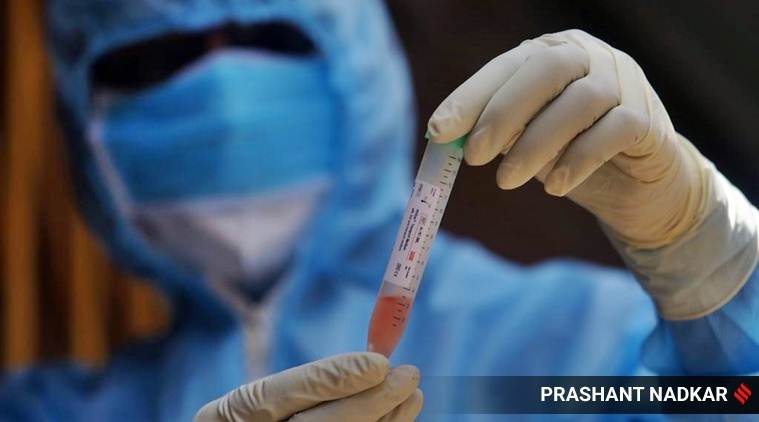 Delhi has a testing rate of over 2,000 tests per million population.
Delhi has a testing rate of over 2,000 tests per million population.
Worried over the pendency of coronavirus test results at the National Institute of Biologicals (NIB) in Noida, the Delhi government has ordered all district commissioners not to send any more samples to the institute till May 3, and to send them to government and private labs in Delhi instead.
The decision comes a day after officials, in a meeting with Union Health Minister Harsh Vardhan, highlighted that around 200 test results are pending since April 16 at the institute. “The sudden rise (in cases) happened because there were no results and people kept spreading the infection,” said a senior official from the department.
As per officials, pendency in test results is affecting containment of the disease in several areas. “The samples shall be distributed among government and private labs to ensure the results are received within a day,” said the official.
Delhi has a testing rate of over 2,000 tests per million population. Officials said even government labs, including the one at Lady Hardinge Medical College, are overburdened. “We are testing over 200 samples a day. Since the guidelines have changed and more samples are being sent from containment zones, the pressure on labs has increased. Our lab is running 24×7, we are also planning to increase capacity. The patient load hasn’t increased but the sample load has gone up,” said Dr N N Mathur, medical director of LHMC.
As per officials, an RT-PCR test takes around five-six hours to complete. At the Institute of Liver and Biliary Sciences, there are two labs and around 350-450 samples are tested every day. “We are using pool RNA strategy and pool extraction strategy in our labs. With this, 8 RT-PCR tests can be put together and more results will come out at one go. We are planning to enhance capacity at the lab. But, while testing is happening across centres, there is still a need to have rapid testing in the city,” said Dr S K Sarin, head of ILBS.
The department has also directed labs to provide reports to the Integrated Disease Surveillance Program. Testing and tracking of all fresh positive cases, as well as tracking of repeat samples, is critical to ensure immediate monitoring of all cases. If this information is not collected from labs in a time-bound manner, it will lead to a delay in tracing new positive cases,” said another official.